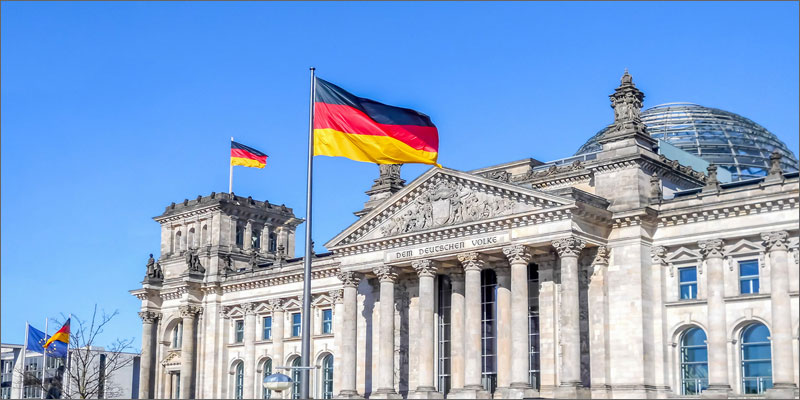
- German Chancellor Olaf Scholz's coalition government was toppled in a confidence vote. Early elections have been scheduled for Feb. 23, 2025.
- Scholz's "traffic light" coalition of the SDP, Greens and FDP collapsed in November 2023 following a budget dispute over spending and debt rules.
- Scholz's government has been unpopular, and his SDP has declined in the polls and is expected to be toppled.
- CDU/CSU's Friedrich Merz has positioned himself as the main rival of Scholz and is expected to become Germany's next chancellor.
- The rise of the anti-illegal immigrant Alternative for Germany party could complicate the creation of a stable governing coalition.
The coalition government of German Chancellor Olaf Scholz has just been toppled in a confidence vote in the country's parliament, setting the stage for early elections scheduled for Feb. 23, 2025.
The confidence vote saw 394 lawmakers vote against his government, 207 vote in favor and 116 abstain. The early election is seen as a direct consequence of the collapse of his three-party coalition government in November 2023. This marks a significant political development in Germany, as Scholz’s administration transitions into a caretaker government until the new elections.
The collapse of Scholz’s coalition, known as the "traffic light" coalition due to the colors of the Social Democratic Party (SPD), Greens and Free Democratic Party (FDP), was triggered by a budget dispute.
The SPD and Greens sought to relax Germany's strict debt rules to finance domestic infrastructure projects and continued military support for Ukraine. FDP leader and former Minister of Finance Christian Lindner opposed this move, believing it to be in the best interests of the government to prioritize debt reduction.
Lindner was subsequently dismissed from his post as Finance Minister, leading to him withdrawing the FDP from the coalition, leaving the SPD and Greens without a parliamentary majority.
The outcome of the vote was widely anticipated, as Scholz’s minority government had been reliant on opposition support to pass legislation since the coalition’s collapse. The caretaker government, consisting of the SPD and Greens, will continue to operate without a majority, limiting its ability to enact significant policy changes.
Scholz likely to be ousted in upcoming election
Scholz's political future appears uncertain, with polls indicating a decline in his popularity. A majority of Germans are reportedly dissatisfied with his performance, and some media outlets have labeled him the "most unpopular chancellor of all time."
Opinion polls show the SPD at third place with 16 percent support, compared to the conservative Christian Democratic Union/Christian Social Party (CDU/CSU) and the conservative and anti-illegal immigration Alternative for Germany (AfD) at 18 percent. (Related: German AfD-affiliated economist detained and interrogated for 10 hours, refused entry to U.S. while phone confiscated over "offensive" meme.)
CDU/CSU leader Friedrich Merz, who is the party's candidate for chancellor, has positioned himself as Scholz’s main rival. Merz has criticized Scholz’s leadership, accusing him of weak performance in the European Union and failing to deliver on promises of rearmament following Russia’s invasion of Ukraine. Scholz, in turn, has defended his record as a crisis manager, emphasizing his efforts to address economic and security challenges.
The fragmentation of Germany’s political landscape poses additional challenges. The rise of the AfD, seen as a popular alternative to the CDU/CSU for conservatives and other Germans concerned with mass migration, has eroded support for the more mainstream parties.
The AfD's growing popularity is making it increasingly difficult to form a stable governing coalition, as seen with the recent collapse of Scholz's government.
The upcoming election is expected to be fiercely contested, with Merz advocating for tax cuts and fiscal restraint, while Scholz calls for “massive” investment in defense and infrastructure. The outcome will likely determine Germany’s political direction, as the era of consensual coalitions appears to be coming to an end.
Watch this episode of "World Alternative Media" as host Josh Sigurdson discusses the recent collapse of the governments of Germany and Canada.
This video is from the World Alternative Media channel on Brighteon.com.
More related stories:
Russian ship fires at Germany's army helicopter, German foreign minister reports.
Ryanair CEO O'Leary: Germany is run by "idiots."
Sources include:
Please contact us for more information.


















